During the 2019 Art Basel in Miami Beach, British luxury automotive marque Bentley rounded out its year-long centenary celebrations with the presentation of its new third-generation Flying Spur and its all-electric, autonomous EXP 100 GT concept car showing its vision of sustainable luxury mobility in 2035.
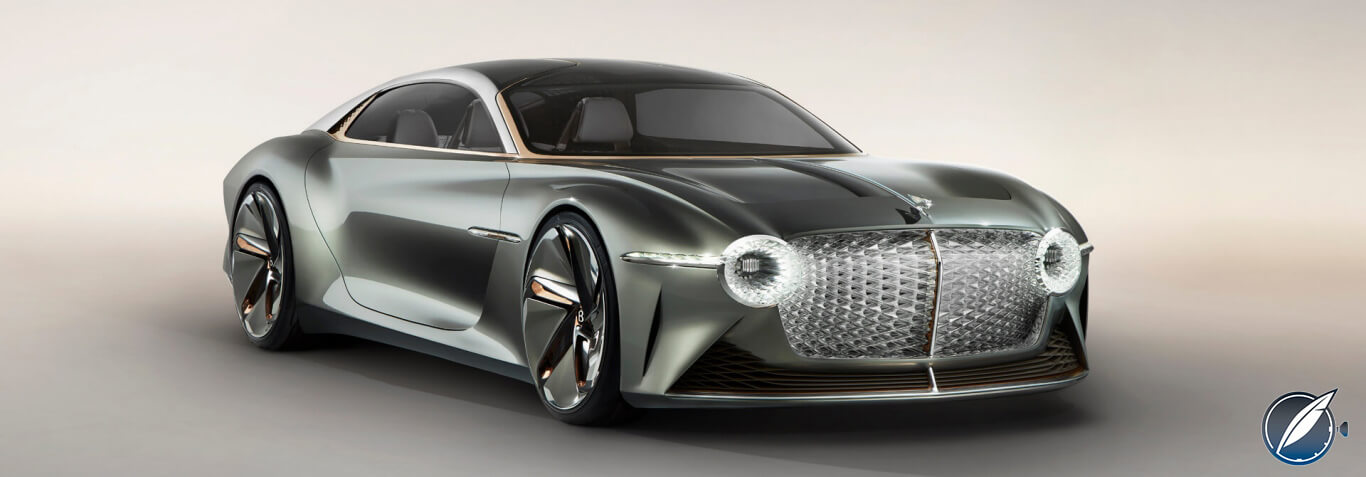
Bentley EXP 100 GT concept car
With its factory headquarters in Crewe, England, having been awarded carbon-neutral certification – 100 percent of its electricity is sourced from renewable generation – and its plans to offer hybrid variants of all models by 2023 and a battery electric vehicle (BEV) by 2025, I sat down with Bentley chairman and CEO, Adrian Hallmark, to discuss how the last 100 years have set the company up for the future – and how sustainability and electrification have been established as the new frontier.
Quill & Pad: What have been Bentley’s milestones over the past 100 years and how have you achieved success?
Adrian Hallmark: The founding of our company was obviously one, and the Bentley Boy racing formative period up to 1930. In 11 years, what the company did was incredible: it went from nothing to a global brand that rivaled Rolls-Royce. We’ve got a glorious past.
The Continental GT in 2003 was clearly a breakthrough; it unlocked potential that had never been seen. To put it in context, between 1919 and 2003 we built and sold 36,000 Bentleys in 84 years. The next 36,000 took four years. Why? Because we fully understood the growth in high net-worth individuals was going to transform the luxury sector, and we also understood that there was a huge gap in the brands in the luxury market compared with the top of premium, not just in price but also the character of the cars and the brands themselves.
The luxury brands tend to be very exotic, not usable every day, so we set up Bentley in a sphere where it’s four-wheel drive, grand touring, usable every day. It’s as inspirational, refined, and crafted as any luxury car has ever been, but at the same time it has superb performance and all-round capability.
Q&P: What is your outlook for the years to come?
AH: The evolution of our current cars has been superb. The latest generation is by far the most technically advanced, the best crafted, the best dynamic, and best design combination that we’ve ever achieved. We’ve never done better, and we’ve pushed the boundaries of every dimension of Bentleyness, but it’s not enough because the world is changing.

Bentley Continental GT Convertible
If we look forward 10 to 20 years, we don’t know what’s going to happen. Ten to 20 years ago, we could predict it. It was incremental: a bit more power, a bit more leather option, a bit more chrome or a bit less chrome. It was all the same but different, better shape, better proportions, but not radical change.
Now electrification, autonomous, environmental concerns, awareness of the whole value chain. We’ve got to be totally transparent and carbon neutral to be relevant in 10 to 20 years’ time. If we can achieve that level of environmental and ethical cleanliness, that is a USP for the luxury sector and for Bentley specifically.
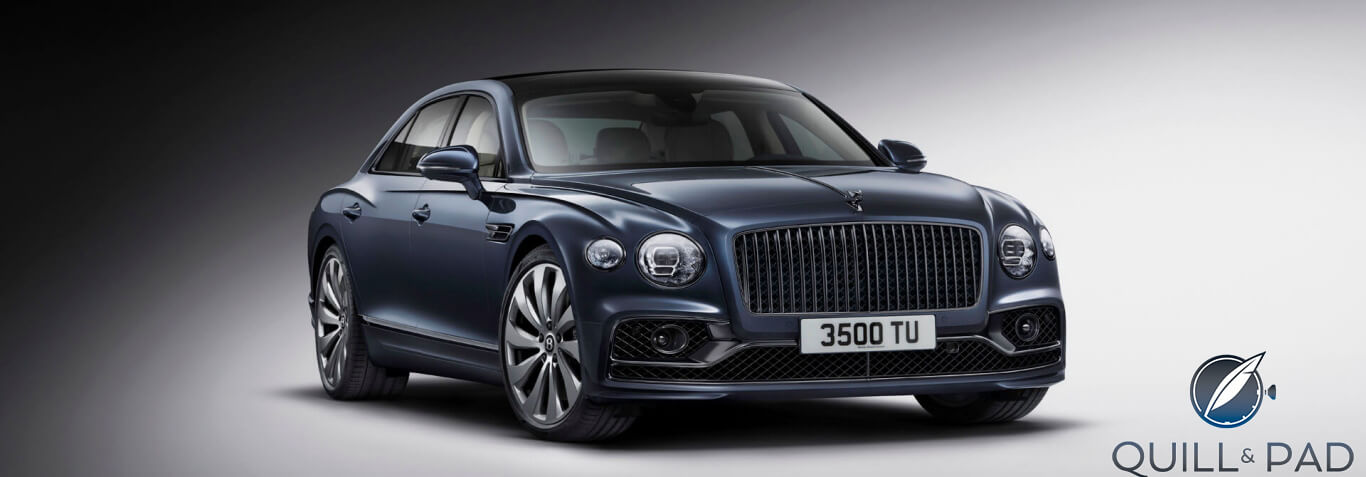
Bentley Flying Spur 2020
Nowadays, the speed of our value shift is incredible, so we’ve got to be agile and we’ve got to reinvent Bentley and luxury automobiles to be relevant. So that’s our next milestone. To get there, obviously the EXP 100 is a vision of how that could look, but first we’ll electrify everything we currently sell.
We’ll have a full plug-in hybrid option with big batteries so they have good range. We aim to put our first full-battery electric car on the road by 2025, and we’re only holding back so that we can build a Bentley. Bentleys go long distances on one fill-up, are quite big, high performance, and luxury. The current battery technologies aren’t strong enough for our proposition, but by the mid-2020s they will be, so we’re working hard in that direction.
Q&P: Are you ahead or behind of the competition in terms of electrification?
AH: In hybridization, we’re ahead. I’m only counting luxury brands: Lamborghini, Ferrari, McLaren, Rolls-Royce, Aston Martin, and Bentley. You have specialists like Koenigsegg and Pagani, but they’re very niche. So we’re the big players, and Bentley is the biggest of the six.
We sell more than Ferrari plus Aston and Rolls combined per year. That’s because we’ve got the broadest range of cars and you can use them every day or for special occasions. We were the first hybrid in the luxury sector with the Bentayga. All of our cars will be hybridized very quickly, so we’re ahead or on pace.
With electric cars, I don’t know if Aston Martin will beat us to get out the first electric car, but I don’t just want an electric car because we could do that already with a Taycan-based Bentley. We want a Bentley BEV, and that means it’s got to be bigger, have a certain capability, performance and range, and that takes a bit longer because you’ve got this physical problem with batteries that you could just keep adding cells to make it stronger and give you more range, but the weight you add in destroys the performance that you increase.
Q&P: What does this transition entail in terms of changes to manufacturing?
AH: Not a lot because a lot of it is the same as the conventional vehicle, but you have to have an isolated area where the battery is fed into the factory and then put into the car. After it’s fitted, you have to have a different process with those cars than the other ones, but it all fits down the same track.
We have to put the batteries in right at the end because they’re so heavy that they wouldn’t work on the lifts, which are only designed to cope with conventional cars. Then they have a little side lane that they go through. From a technology/development point of view, we’ve had to develop new skills and buy in new skills. We work very closely with Porsche nowadays because they’ve already done a lot of this work, and we have a very collaborative working model with them.
From an infrastructure point of view, 30 percent on average of our power comes from solar, 40 percent at peak, and we’re looking to expand that. We’re also planning a three-megawatt battery to be able to store what we can’t use on the day and use it when the sun doesn’t shine, which will take us up to 40 percent on average. We’ve got lots of land around the factory. We’re looking to double the solar capacity, so I’ve set the challenge to get us to 60 plus percent average solar power.
Q&P: How much have you invested in electrification?
AH: If I go five years back to get us to the first hybrid, which is where we are now, and the next five years, that’s hundreds of millions. Of course, it’s a risk if our customers don’t buy them since they don’t have to worry about fuel consumption, but obviously we have to make the offer, and we’ll make our hybrids true Bentleys.
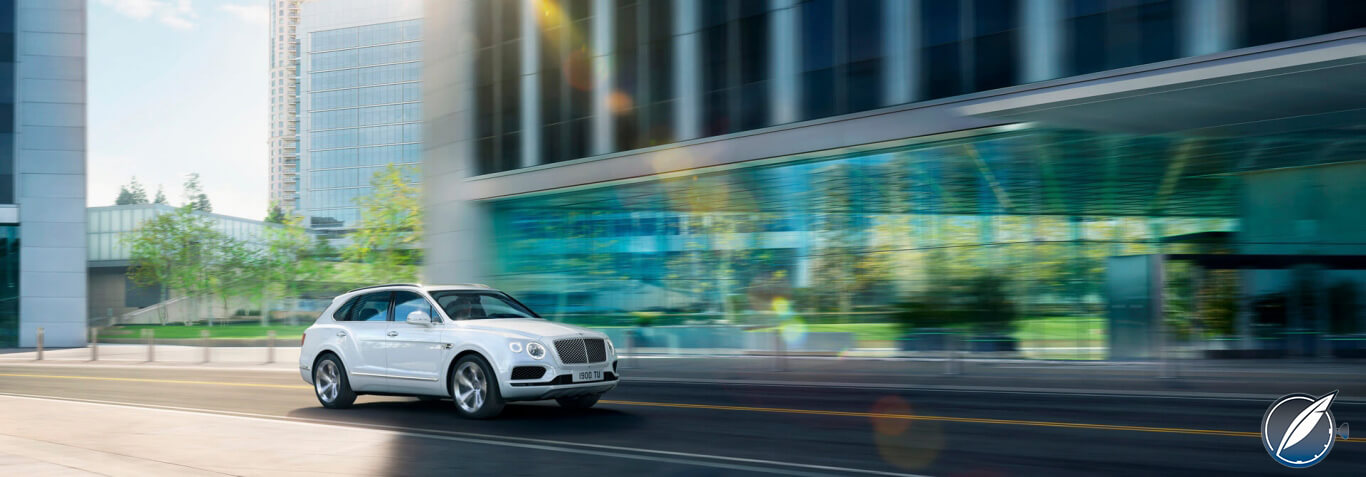
Bentley Bentayga Hybrid SUV
The V6 hybrid in the Bentayga, for example, has got the performance of the V8, the quietness of the W12, and the fuel consumption of an eight-cylinder diesel. We will market it strongly, and I think we’ll attract a lot of customers, not only existing ones, but also new customers who can see the value in that power train.
Q&P: Where are your battery cells sourced from?
AH: The first-generation batteries for hybrids all come from Japan, but as a group we’re looking at and working with battery companies in China and Korea also, and some startups too. The group has bought 16 percent of QuantumScape in California.
They have solid-state battery technology that is close to industrialization, weighs 30 percent less than lithium ion because you can package it much closer. There’s no fluid in there as the intermediate service between the anode and cathode, so it doesn’t explode and doesn’t burn.
It’s 30 percent smaller because you need less protection; 70 percent of the weight of the battery is protecting the cells, so by taking that risk away, you can shrink it down or you can keep it the same size and get more power and range. The first prototypes will be in 2021, and first industrialization in 2023-24, but there’s risk on that timing. That’s why we’re saying 2025 is a safe target time for us because we believe then lithium ion will have improved and/or solid state will have come into the sphere.
Q&P: What is the current ratio between your petrol and hybrid cars?
AH: Hybrid today, we’ve only delivered the first few cars, but in a full year, we’ve planned on 15 percent. I think it’ll be higher.
Q&P: What do hybrid or electric cars do better than petrol cars?
AH: Our hybrid is a V6 petrol. It does almost twice the miles per gallon, or at least you get 30 to 50 percent improved fuel economy even if you don’t charge it properly. But also, it allows us to put a smaller engine in and use the electricity to give us the full power so that you can then have less emissions from a smaller engine as well as have better fuel efficiency for the combined efficiency.
When hybrids were first discussed it was just petrol or electric, and it switched. Now, we’ve put a huge amount of effort into three drive modes: e-drive, hybrid, or hold.
In hold, it only uses electric power when you’re under 25 miles an hour, stop/start, and to fill in the torque when you’re driving hard, and it maximizes the scavenging of regeneration electricity.
I drove 1,200 km from Crewe to Geneva in the Bentayga Hybrid. When I set off, it had 49 km in the battery. When I got there, it had 39 km. I was driving it hard all the way, but when you brake it regenerates, and there are long hills on the motorway. Then I did all my driving in the city on full electric mode.
For more please visit www.bentleymotors.com.
You may also enjoy:
The 2019 Bentley Flying Spur: Don’t Let The Chauffeur Have All The Fun
2018 Bentley Continental GT: A Learjet For The Autobahn (With Video)
The Bentley Bentayga: You Will Love The $160,000 Dashboard Clock Option
The Horological Reason Behind The Rise Of The Super SUVs (Satire)
Collecting Watches And Cars: What’s The Same And What’s Different?









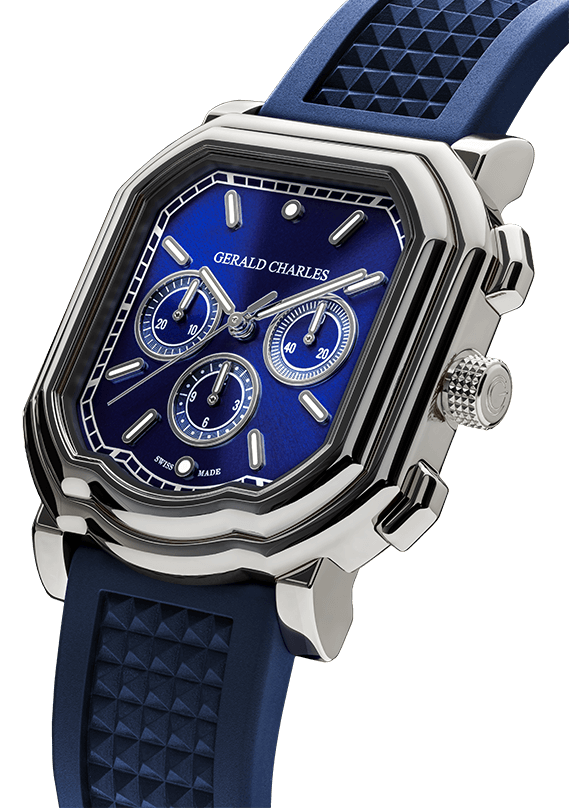

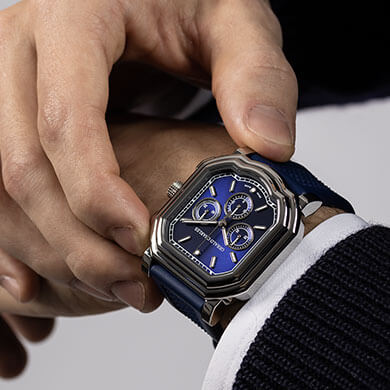
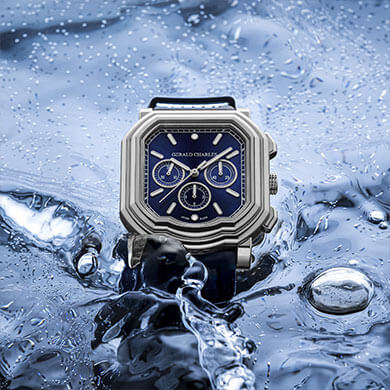

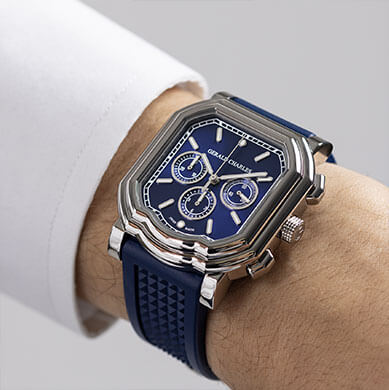








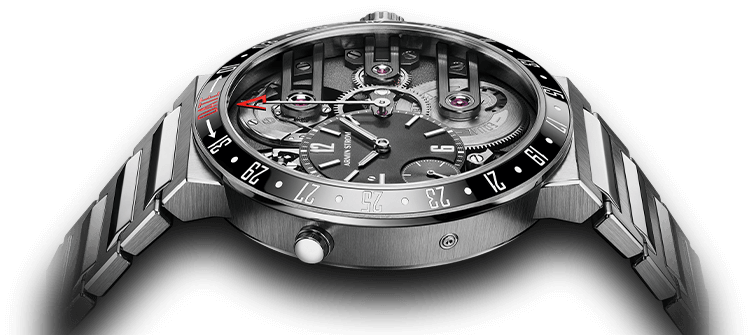
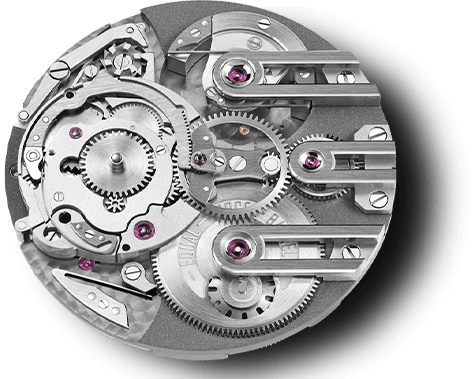


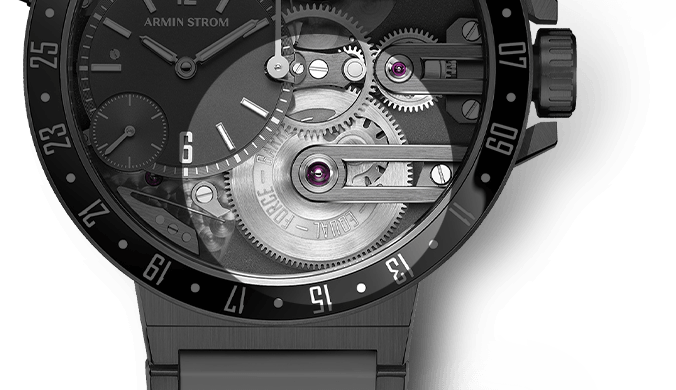




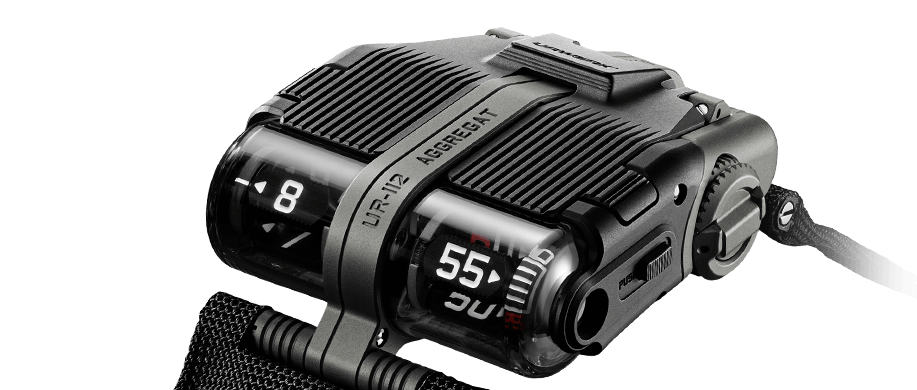
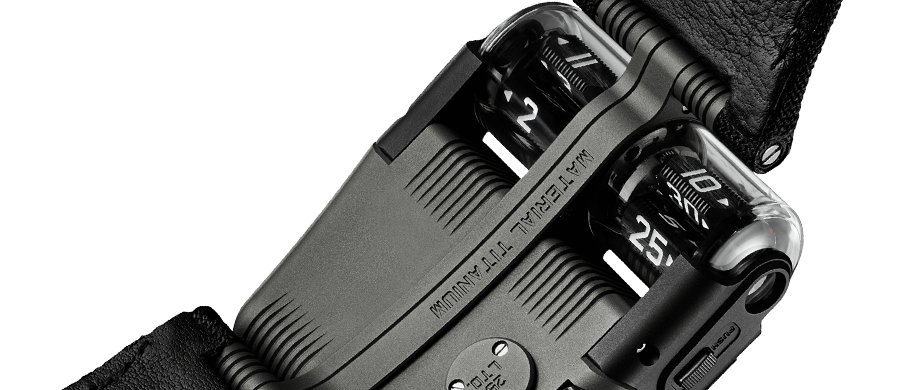
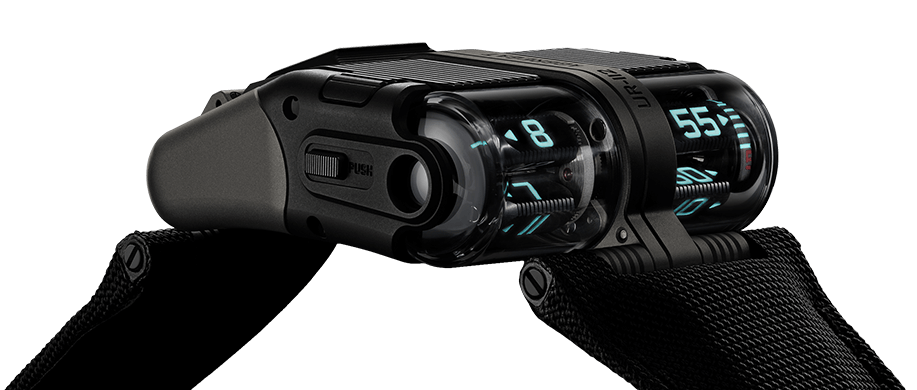














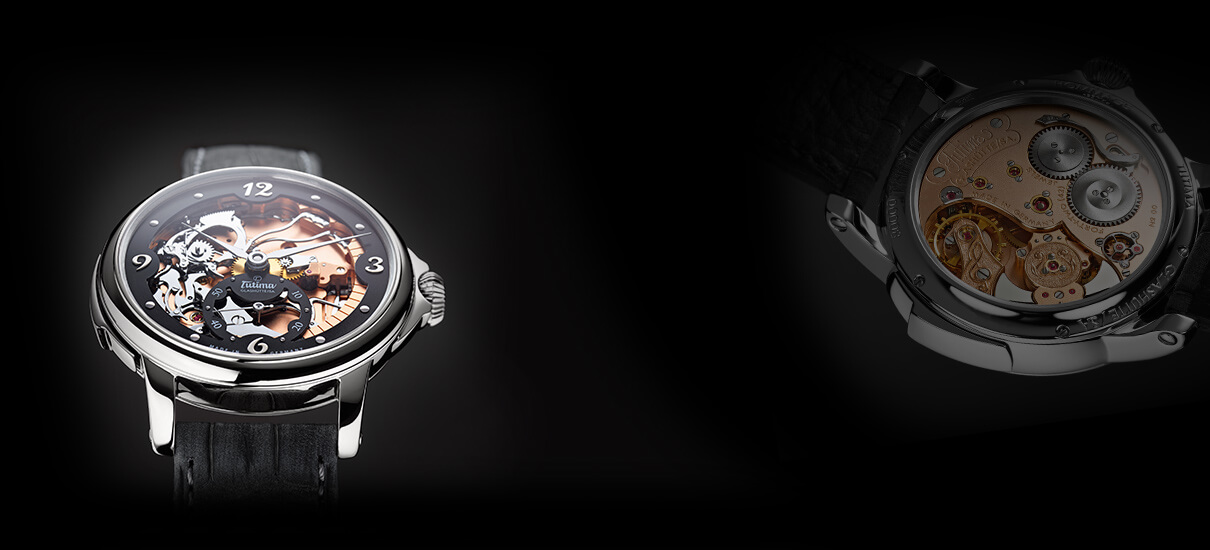



Leave a Reply
Want to join the discussion?Feel free to contribute!